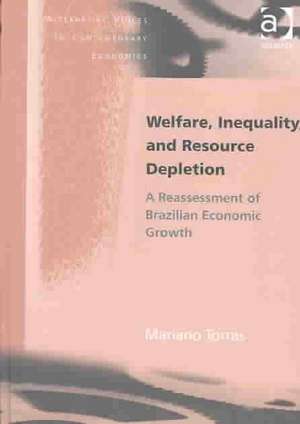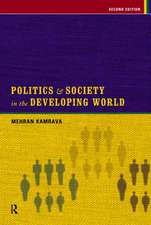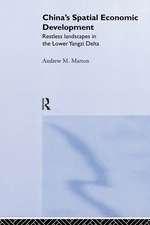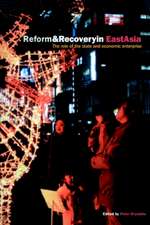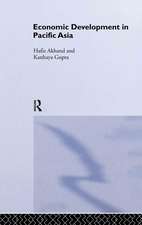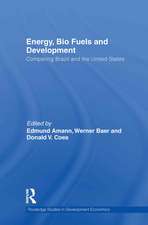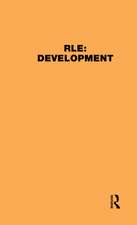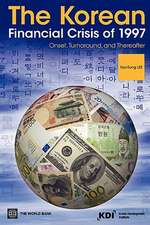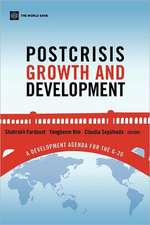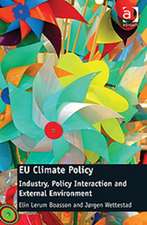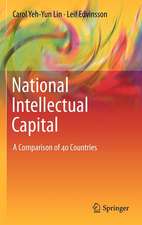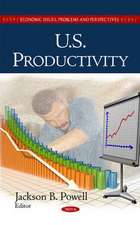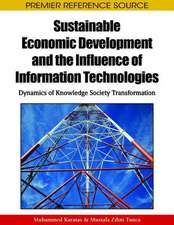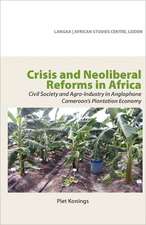Welfare, Inequality, and Resource Depletion: A Reassessment of Brazilian Economic Growth: Alternative Voices in Contemporary Economics
Autor Mariano Torrasen Limba Engleză Hardback – 28 mar 2003
| Toate formatele și edițiile | Preț | Express |
|---|---|---|
| Paperback (1) | 338.33 lei 6-8 săpt. | |
| Taylor & Francis – 11 noi 2016 | 338.33 lei 6-8 săpt. | |
| Hardback (1) | 736.38 lei 6-8 săpt. | |
| Taylor & Francis – 28 mar 2003 | 736.38 lei 6-8 săpt. |
Preț: 736.38 lei
Preț vechi: 1027.40 lei
-28% Nou
Puncte Express: 1105
Preț estimativ în valută:
140.90€ • 147.51$ • 116.59£
140.90€ • 147.51$ • 116.59£
Carte tipărită la comandă
Livrare economică 05-19 aprilie
Preluare comenzi: 021 569.72.76
Specificații
ISBN-13: 9780754631538
ISBN-10: 0754631532
Pagini: 208
Dimensiuni: 153 x 219 mm
Greutate: 0.45 kg
Ediția:New.
Editura: Taylor & Francis
Colecția Routledge
Seria Alternative Voices in Contemporary Economics
Locul publicării:Oxford, United Kingdom
ISBN-10: 0754631532
Pagini: 208
Dimensiuni: 153 x 219 mm
Greutate: 0.45 kg
Ediția:New.
Editura: Taylor & Francis
Colecția Routledge
Seria Alternative Voices in Contemporary Economics
Locul publicării:Oxford, United Kingdom
Cuprins
Contents: Sustainable development: an introduction; The political economy of growth and deforestation in Brazil; Measuring sustainable development: definitional issues and competing perspectives; Green income accounting: the commodity value of natural resources; Green income accounting: the conservation value of natural resources; Sustainable development reassessment: application of the distribution weights framework; Conclusion: requiem for GDP?; Appendices; Bibliography; Index.
Recenzii
'At last we have a solid empirical analysis that intertwines several strands of ecological economic theory. Long run resource availability is being exploited for short run economic gains, the poor are pawns in the process rather than beneficiaries, and our economic indicators are hiding the truth.' Richard B. Norgaard, Past President, International Society for Ecological Economics, University of California at Berkeley, USA '...Torras demonstrates that it is both possible and desirable to construct alternative measures of economic performance that are sensitive to natural-resource depletion and income distribution. This book should be required reading for economists and others concerned with sustainable human development.' James K. Boyce, University of Massachusetts, Amherst, USA 'This book serves a double purpose. It is an excellent textbook on the methods for "greening" National Income Accounting. At the same time, it contributes powerfully to the debate on the environmental unsustainability of economic growth in Brazil. It also takes into account social distribution issues so topical after the recent change in government.' Professor Joan Martinez-Alier, Universitat Autonoma, Spain
Descriere
This book breaks new ground by accounting for the welfare implications of both severe inequality and environmental degradation and developing a sustainable development indicator that incorporates changes over time in each of these dimensions. The model is applied to data from Brazil spanning the 1965 -1998 period.
